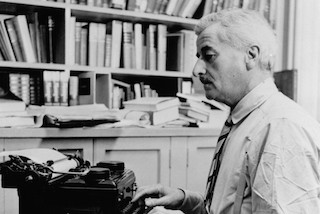One by one, men’s bodies are washing up on the shore of a river that passes through town, where they are claimed by the local women as their missing husbands and fathers, even though the faces of the dead men are unrecognizable. A tug-of-war ensues between the local police, who insist that the women couldn’t possibly recognize their loved ones, and the women demanding the right to bury the bodies of their beloveds.
Set in a Greek village in 1942, here is Ariel Dorfman’s haunting and universal parable of individual courage in the face of political oppression. Widows is a testament to the countless people who are taken away for “questioning” and never return, and a tribute to those whose fierce defiance ensures the dead are not forgotten.
First published in 1983, Widows is one of Dorfman’s most popular and lasting books, a classic in the literature of social protest.
Collected in
Select Fiction FavoritesDoes America Deserve to Survive?
Does America deserve to survive?
That's the question William Faulkner asked himself after the 1955 murder of Emmett Till, and that's the question Ariel Dorfman has found himself wondering in 2016, during his pilgrimage to Faulkner's hometown of Oxford, Mississippi.
So much and so little has changed, it seems to Dorfman, who pondered what Faulkner might have made of todays's America in a recent Atlantic essay.
For one thing, Dorfman sees Donald Trump as a hypertrophied version of recurring Faulkner villain Flem Snopes, the mountebank-in-chief of Frenchman's Bend, Mississippi, a fictional Faulkner town.

Of course there are many Americas, as Ariel Dorfman knows well, and likely there are some vantage points the cagey southern author and Dorfman would not share. But Dorfman understands well that Faulkner wouldn't have simply thumbed his nose at today's Trump supporters, as do so many 2016 intellectuals. "Faulkner would have understood," Dorfman writes, "the roots of the present disaffection of those people he cared for so much and the fear from which that disaffection derives, the feeling that they are trapped in a historical tide not of their making, their American dream gone berserk."
No one likes it when their dream convulses and dies. It may be, then, that if America is to survive, we'll have to invent another American dream, or another America. And the imaginative work of Ariel Dorfman is a great start.














